“I think we ought to read only the kind of books that wound or stab us. If the book we’re reading doesn’t wake us up with a blow to the head, what are we reading for? So that it will make us happy, as you write? Good Lord, we would be happy precisely if we had no books, and the kind of books that make us happy are the kind we could write ourselves if we had to. But we need books that affect us like a disaster, that grieve us deeply, like the death of someone we loved more than ourselves, like being banished into forests far from everyone, like a suicide. A book must be the axe for the frozen sea within us. That is my belief.”
Franz Kafka
In December of 2015, I would begin to understand the significance of Kafka’s words.
During an intense and sobering three month period, I would read six of the greatest war novels ever written. I would came to know on an intimate level the remarkable power of books and their transformative capabilities.
These books would slowly chisel away at the previously held ideas I had on the subject, much of them vulgar, misinformed, and naive.
Up until that point in my life, my shallow understanding of war was partly made up of the empty facts, figures, and dates that I memorized in history class. The boring stuff like politics and statistics, which were to me at the time, emotionally disconnected and meaningless.
The majority of the rest of my experience came from television, movies, and video games. Most of them were violent, and aggressive, and probably much more gruesome than they needed to be. It’s no wonder why they piqued the interest of so many young men like myself.
Its been shown that testosterone is associated with risk-taking and competitiveness, which are linked to aggression. That might explain men’s fascination with war and perhaps why over 90% of prison inmates are men.
It’s not surprising either then that, historically, war has been predominantly male. A successful soldier was one who embodied our cultures most revered masculine traits: Leadership, strength, courage, independence, and confidence.
They are the very same traits that mark the hero in these movies I grew up watching. Valiant and triumphant; they represented the glorified ideals of selflessness and bravery.
The thing I didn’t know then, that I know now, was that most of it was socially engineered propaganda aimed to feed a narrative of patriotism. If you read my last post, What Can We Learn From Dystopian Fiction, we know what our governments are capable of. It’s something they do well, and often.
This is from the CBC: How Hollywood became the unofficial propaganda arm of the U.S. military. “No country in the world churns out as many images of itself as the military hero… like the United States does. That is a unique cultural phenomenon.”
That’s where people like me acquired much of their distorted view of war, from the people who are in the business of profiting from it. Here’s another quote from the article:
“The head of the Office of War Information was Elmer Davis who said, ‘The easiest way to inject a propaganda idea into most people’s minds is to let it go through the medium of an entertainment picture when they do not realize they’re being propagandized,'”
Unfortunately, compared to books, movies are largely devoid of deep meaningful emotion. Filmmakers manufacture phoney emotion using sensationalized music and visuals to create artificial feeling. Think of how often it rains when a character is sad. Pay attention to the rhythm and tone of the music when the character is happy. Lighting is another technique used to generate a desired sentiment.
When we watch something, we’re corralled into thinking a certain way. The speed at which an audience is exposed to new ideas doesn’t leave much time for us to consciously examine them as they happen.
Reading on the other hand, allows us to think. We have time to pause and reflect on the information were taking in.
“Despite the enormous quantity of books, how few people read! And if one reads profitably, one would realize how much stupid stuff the vulgar herd is content to swallow every day.”
Voltaire
These novels provided me with an alternative understanding of war. They gave me powerful and articulate accounts of its horrors and realities from the perspectives of the people that it affected the most.
Maybe besides A Red Badge of Courage, these books don’t focus on glorified ideals of bravery and patriotism. Instead, they contain raw displays of humanity, profound concepts of love, life, and death, centered around a backdrop of conflict.
I wrote this piece to highlight some the most memorable passages and quotes from these novels and to show how their ideas changed me, and my world view, forever.
The books are fiction, but the events and the actions of the characters were based on real experiences. Non-fiction gives you facts and theories, but it’s fiction that gives you the emotions to pair them with; they don’t just tell you information, they show it to you.
Ralph Waldo Emerson put it well when he said that: “Fiction reveals truth that reality obscures.” Albert Camus said something similar when he said: “Fiction is the lie through which we tell the truth.”
To me, literary fiction is to a painting, what a non-fiction book is to a photograph. A great artist can make a painting look as real as a photo, that’s what these authors do with truth.
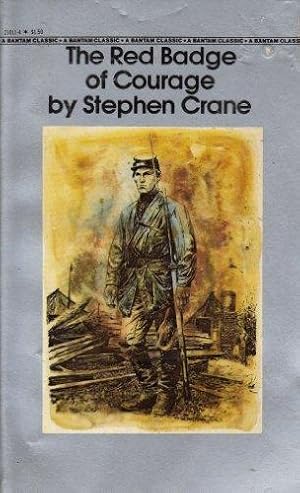
Stephen Crane’s Civil War novel, The Red Badge Of Courage, is highly regarded and praised for its realism, which is interesting, because he didn’t actually fight in the war. It’s been said that he interviewed veterans for their experiences. He might have also gotten information from The Century Magazine’s Civil War series. It was a collection of stories written by those who experienced battle.
In the novel, a young soldier named Henry Flemming struggles with his idealized concepts of glory and courage. He continuously questions his own character and thinks that he will run when the fighting starts. He is jealous of the wounds that the other soldiers have. He wishes he had a ‘red badge of courage’ like them that would allow him to avoid the fighting and to win glory for himself.
As he marches toward the front line, he encounters the bodies of dead soldiers, and he has mixed feelings of fear, confusion, and disgust.
“The youth looked keenly at the ashen face. The wind raised the tawny beard. It moved as if a hand were stroking it. He vaguely desired to walk around and around the body and stare; the impulse of the living to try to read in dead eyes the answer to the Question.”
The valour and glory that he expects the dead to have earned by dying in battle doesn’t look very dignified and glorious to him. He soon finds out the ugly truth of how chaotic and messy battle is.
“The men dropped here and there like bundles. The captain of the youth’s company had been killed in an early part of the action. His body lay stretched out in the position of a tired man resting, but upon his face there was an astonished and sorrowful look, as if he thought some friend had done him an ill turn. The babbling man was grazed by a shot that made the blood stream widely down his face. He clapped both hands to his head. “Oh!” he said, and ran. Another grunted suddenly as if a club had struck him in the stomach. He sat down and gazed ruefully. In his eyes there was mute, indefinite reproach.”
Towards the end of the novel, Flemming ends up fighting valiantly and he wins the respect of his officers. In the heat of the moment, the fighting works him into a frenzy. He becomes callous and bloodthirsty. He shows us how war can bring out the worst in us.
“His fingers twined nervously about his rifle. He wished that it was an engine of annihilating power. He felt that he and his companions were being taunted and derided from sincere convictions that they were poor and puny. His knowledge of his inability to take vengeance for it made his rage into a dark and stormy specter, that possessed him and made him dream of abominable cruelties. The tormentors were flies sucking insolently at his blood, and he thought that he would have given his life for a revenge of seeing their faces in pitiful plights.”
There are debates as to whether Crane’s novel is pro or anti-war. I could probably be convinced either way. It has moments where it details the grim realities of battle, but at the same time shows us the emotional and psychological toll it takes on its participants. Compared to the rest of the novels in this post however, I would say it’s pro-war.
Like Kafka said, this book affected me like a disaster, and it was working at the frozen sea within me. I was grappling with these heavy philosophical questions that it caused me to reflect on.
What kind of soldier would I have been? Would I have been brave enough to venture away from cover, out of my trench or fox hole, while bullets and shells were wizzing by my head?
It’s hard to wrap your head around the fact that often times bravery is just the product of dumb luck. Death could just mean being in the wrong place at the wrong time.
Another question I would ask myself was, if under similar circumstances, are we all capable of such cruelty and apathy? Would I have be able to cope with the knowledge of having committed acts of violence like these?
We’re told that killing is wrong, morally and lawfully. Is necessary war a satisfying justification?
I think to be a good soldier, you have to be extremely comfortable with the unknown. Maybe thats why these books hit me so hard, precisely because I would have been a bad soldier. I’m not even comfortable with not knowing the answers of these questions, let alone if was going to live or die every day.
“So it came to pass that as he trudged from the place of blood and wrath his soul changed.”
STEPHEN CRANE

Next I read All Quiet on the Western Front. It’s a short novel published in 1920. It was written from the perspective of a German soldier named Paul during World War One. It’s a chilling and somber description of the disconnection and loss of innocence that young men were subjected to.
“I am young, I am twenty years old; yet I know nothing of life but despair, death, fear, and fatuous superficiality cast over an abyss of sorrow. I see how peoples are set against one another, and in silence, unknowingly, foolishly, obediently, innocently slay one another.”
ERICH MARIA REMARQUE
The following quote comes from a scene in the book where Paul gets a temporary leave of absence from the front line. He goes back home to visit his family, but he feels isolated and distant from the life he once knew.
“I breath deeply and say over to myself: ‘You are at home, you are at home.’ But a sense of strangeness will not leave me, I cannot feel at home amongst these things. There is my mother, there is my sister, there is my case of butterflies, and there the mahogany piano – but I am not myself there. There is a distance, a veil between us.”
Erich Maria Remarque
Interesting Fact! Gertrude Stein would famously refer to the men that fought in WW1 as The Lost Generation. The name would eventually become attributed to a group of talented young writers including Gertrude Stein herself, F. Scott Fitzgerald, Ernest Hemingway, T.S. Elliot, Ezra Pound, Jean Rhys, and Sylvia Beach.
There is a particular scene from the book that feels as real to me now as one of my most vivid memories. I will never forget it.
Paul gets lost on the battlefield, and seeks cover in a shell hole. A french soldier jumps into the hole that Paul is in, and Paul stabs him with his beyonet. The man manages to stay alive for a few hours as Paul tends to his wounds and gives him water. In quick succession Paul goes from anger, to fear, to guilt, to empathy, and sorrow. As he lays next to the body, the author describes his emotions.
“Comrade, I did not want to kill you. . . . But you were only an idea to me before, an abstraction that lived in my mind and called forth its appropriate response. . . . I thought of your hand-grenades, of your bayonet, of your rifle; now I see your wife and your face and our fellowship. Forgive me, comrade. We always see it too late. Why do they never tell us that you are poor devils like us, that your mothers are just as anxious as ours, and that we have the same fear of death, and the same dying and the same agony–Forgive me, comrade; how could you be my enemy?”
ERICH MARIA REMARQUE
He opens the dead man’s wallet and looks at pictures of his family. Because of the deep remorse and pity he feels, he vows to send money to them to make amends. Eventually, the reality of his surroundings jar him from loose from his revery. He admits that he likely won’t do the things that he promised the dying man. He makes his way back to his comrades to fight another day, as life, and the war, rages on.
“Our thoughts are clay, they are moulded with the changes of the days;–when we are resting they are good; under fire, they are dead. Fields of craters within and without.”
ERICH MARIA REMARQUE
These books show in violent detail the unglorified side of war. They show the deep psychological trauma and lingering effects of the war even after it’s over. They dont’t feel so much like propaganda. They’re not about big explosions and action or patriotism. They show the lunacy and irrationality of war, themes that are covered thoroughly in the next book I read.

Joseph Heller’s 1961 novel, Catch-22, is an anti-war comedy about a witty and stubborn World War Two bomber named Yossarian. It’s a hilarious and clever book that pokes fun at the chaos of military bureaucracies and the logical irrationality that is inherent in war.
“There was only one catch and that was Catch-22, which specified that a concern for one’s own safety in the face of dangers that were real and immediate was the process of a rational mind. Orr was crazy and could be grounded. All he had to do was ask; and as soon as he did, he would no longer be crazy and would have to fly more missions. Orr would be crazy to fly more missions and sane if he didn’t, but if he was sane, he had to fly them. If he flew them, he was crazy and didn’t have to; but if he didn’t want to, he was sane and had to. Yossarian was moved very deeply by the absolute simplicity of this clause of Catch-22 and let out a respectful whistle. ‘That’s some catch, that catch-22’.”
The novel frequently uses ridiculous, circular logical reasonings like that. Another example is a scene where a character is accused of a crime and interrogated. The men interrogating him don’t know what the crime is. They think by asking him questions, he will reveal to them what it is that he’s guilty of.
Another is about the dead man that shares a tent with Yossarian. A man’s belongings are shipped to the air-base and put in Yossarians tent, but the owner died in combat before he could claim them. He isn’t yet declared dead on paper by the army so his luggage can’t be removed and sent home. He and his belongings represent a sort of bureaucratic limbo in the novel.
Catch-22 says they have a right to do anything we can’t stop them from doing.
Joseph Heller
Heller also critiques capitalism and the Military Industrial Complex (the informal alliance between a nations military and the defence industry that supplies it).
These themes are embodied by one of the novels most fascinating characters, a mess officer named Milo Minderbinder. While on the air-base he creates a company called M&M Enterprises. The first “M” stands for Minderbinder, he adds the second “M” to make it seem like his operation isn’t a one man show. Eventually, his company earns enough money – by buying an selling goods on the black market – to equip his own fleet of bombers. He contracts missions out to the germans, who end up bombing and killing some of the Americans on his own base. He gets court-marshalled for treason, but he hires an expensive lawyer with the large amount of money his company made. He gets off the hook by defending capitalism and citing it as the source of America’s current economic prosperity.
Despite the laughs, the novel still has one of the most chilling and gruesome images of war that i’ve ever read. It could be the striking contrast between the relatively light subject matter and comedy of the rest of the novel that made it seem much more horrible to me at the time. If you have a weak stomach, i’d recommend skipping ahead past the second line.
“But Snowden kept shaking his head and pointed at last, with just the barest movement of his chin, down toward his armpit. Yossarian bent forward to peer and saw a strangely colored stain seeping through the coveralls just above the armhole of Snowden’s flak suit. Yossarian felt his heart stop, then pound so violently he found it difficult to breathe. Snowden was wounded inside his flak suit. Yossarian ripped open the snaps of Snowden’s flak suit and heard himself scream wildly as Snowden’s insides slithered down to the floor in a soggy pile and just kept dripping out.
A chunk of flak more than three inches big had shot into his other side just underneath the arm and blasted all the way through, drawing whole mottled quarts of Snowden along with it through the gigantic hole in his ribs it made as it blasted out. Yossarian screamed a second time and squeezed both hands over his eyes. His teeth were chattering in horror. He forced himself to look again. Here was God’s plenty, all right, he thought bitterly as he stared – liver, lungs, kidneys, ribs, stomach and bits of the stewed tomatoes Snowden had eaten that day for lunch.
Yossarian hated stewed tomatoes and turned away dizzily and began to vomit, clutching his burning throat. The tail gunner woke up while Yossarian was vomiting, saw him, and fainted again. Yossarian was limp with exhaustion, pain and despair when he finished. He turned back weakly to Snowden, whose breath had grown softer and more rapid, and whose face had grown paler. He wondered how in the world to begin to save him. ‘I’m cold,’ Snowden whimpered. ‘I’m cold.’
‘There, there,’ Yossarian mumbled mechanically in a voice too low to be heard. ‘There, there.’
Yossarian was cold, too, and shivering uncontrollably. He felt goose pimples clacking all over him as he gazed down despondently at the grim secret Snowden had spilled all over the messy floor. It was easy to read the message in his entrails. Man was matter, that was Snowden’s secret. Drop him out a window and he’ll fall. Set fire to him and he’ll burn. Bury him and he’ll rot, like other kinds of garbage.
The spirit gone, man is garbage. That was Snowden’s secret. Ripeness was all.
‘I’m cold,’ Snowden said. ‘I’m cold.’
‘There, there,’ said Yossarian.
‘There, there.’
He pulled the rip cord of Snowden’s parachute and covered his body with the white nylon sheets. ‘I’m cold.’
‘There, there.’ “
That passage was based on Heller’s own experience as a bomber in WW2. He flew 60 missions. On his 37th his own B-25 was hit by flak, wounding a gunner.
“Until then, it was all play,” he said. After that, he became terrified of flying. “I was so brainwashed by Hollywood’s image of heroism that I was disappointed when nobody shot back at us.”

Next I read two of Hemingway’s books: A Farewell to Arms and For Whom the Bell Tolls.
A Farewell to Arms is a novel about an ambulance driver named Frederic Henry who is on the Italian front during World War One.
There is a quote that is attributed to Jospeh Stalin, who said that: “One death is a tragedy, a million deaths is a statistic.” To me, thats what this novel drilled into me in a profound way.
There is a scene where a group of soldiers are hit by a mortar shell, several of them are wounded or dead.
“Outside the post a great many of us lay on the ground in the dark. They carried wounded in and brought them out. I could see the light come out from the dressing station when the curtain opened and they brought some one in or out. The dead were off to one side. The doctors were working with their sleeves up to their shoulders and were as red as butchers.”
When Henry makes his way into the the tent he’s asked by a doctor if he was hit badly.
“In the legs.”
“It’s not serious I hope. Will you have a ciggarette?”
“Thanks.”
“They tell me you lost two drivers.”
“Yes. One killed and the fellow that brought you.”
“What rotten luck. Would you like us to take the cars?
“Thats what I wanted to ask you.”
“We’d take good care of them and return them to the villa. 206 aren’t you?”
“Yes.”
“It’s a charming place. I’ve see you about. They tell me you’re American.”
“Yes.”
When Henry is finally taken away in the ambulance, he feels blood drip on him from a haemorrhage of the man above him. The man is dead.
“The drops fell very slowly, as they fall from an icicle after the sun has gone. It was cold in the car in the night as the road climbed. At the post they took the stretcher out and put another one in and we went on.”
The rest of the novel follows Henry as he spends time in the hospital. He meets a beautiful nurse named Catherine Barkley. The two fall in love while she takes care of him. After he recovers, he returns to the front.
The Italians are being pushed back and are forced to retreat. There is a traffic jam and Henry and his men take their vehicles off road to avoid an aerial assault by the enemy. As they escape they encounter their own military police who are interrogating the soldiers and assassinating them. They are accusing them of betraying their country. Henry escapes by jumping into a river.
He later finds Catherine, and they manage to escape to the bordering and neutral country of Switzerland. They live in peace for a while and Catherine gets pregnant. There are complications when she gives birth. The child is stillborn. Catherine suffers a haemorrhage and dies herself.
“You can’t come in now.”
“Yes I can,” I said.
“You can’t come in yet.”
“You get out,” I said. “The other one too.”
“But after I had got them out and shut the door and turned off the light it wasn’t any good. It was like saying good-bye to a statue.”
The novel explores the duality of war and love. The characters fall in love during war time, and their relationship is destroyed in peace time.
The deaths of the soldiers on the front and the death of his wife and child show the striking contrast of emotions we feel during war and peace. Henry and the doctor seem to be making small talk when he is on the dressing table. Death doesn’t have time to be mourned when its happening in war. Like Paul’s attitude in All Quiet in the Western Front after he kills the French soldier, everything gets blanketed over and trivialized by the subject’s vast scale. Something that i’ll be returning to later.

“Never think that war, no matter how necessary nor how justified, is not a crime. Ask the infantry and ask the dead.”
ERNEST HEMINGWAY
Hemingway’s 1940 novel, For Whom the Bell Tolls is about an American named Robert Jordan who is fighting in the Spanish Civil War during the late 1930’s. He is part of a group of Guerrillas that are supported by the Soviet Union to fight against the dictatorship of Francisco Franco. The Spanish nationalists are supported by Nazi Germany and Fascist Italy.
Jordan is tasked with destroying a bridge that is crucial for the advancement of the Fascist troops.
The story describes the changing political climate in Spain at the time. It shows the horrible gravitation toward atrocity that is inherent in uncivilized man as a result of war’s lawlessness. One of the Guerrillas hiding in the Spanish mountains that Jordan meets is a young woman named Maria. Her parents were murdered by the fascist regime. Her hair had been cut off, and she had been brutally tortured and gang-raped.
I remember reading this book around the time I heard of the Winter Soldier Trails. They were a group of young men from the Vietnam War. They came forward and revealed publicly the horrors that they had seen during combat. Here is a link to trailer of the documentary. They tell of their harrowing experiences of watching innocent civilians be killed and their homes destroyed.
In his book Men at War: What Fiction Tell Us About Conflict, Christopher Coker points out that women are the chief victims of war. The mothers and wives that were left behind. The women who were subjected to the shocking and ruthless tendencies of men at war. See the Rape of Nanking for further proof of the evil that lurks beneath the surface of so many men.
After Maria tells Jordan her story he tries to rationalize the irrational, needing, as we all do sometimes, somewhere to place the blame.
“There is no finer and no worse people in the world. No kinder people and no crueler. And who understands them? Not me, because if I did I would forgive it all. To understand is to forgive. That’s not true. Forgiveness has been exaggerated. Forgiveness is a Christian idea and Spain has never been a christian country. It has always had its own special idol worship within the church. Otra Virgen Maś. I suppose that was why they had to destroy the virgins of their enemies. Surely it was deeper with them, with the Spanish religion fanatics, than it was with the people. The people had grown away from the Church because the Church was in the government and the government had always been rotten. This was the only country that the reformation never reached. They were paying for the Inquisition now, all right.”

“They say: sufferings are misfortunes,” said Pierre. ‘But if at once this minute, I was asked, would I remain what I was before I was taken prisoner, or go through it all again, I should say, for God’s sake let me rather be a prisoner and eat horseflesh again. We imagine that as soon as we are torn out of our habitual path all is over, but it is only the beginning of something new and good. As long as there is life, there is happiness. There is a great deal, a great deal before us.”
Leo Tolstoy
In march of 2015 I finally ended my journey into war with Leo Tolstoy’s masterpiece, War and Peace. When I look back now, I realize I couldn’t have picked a better book to close that chapter in my life. Tolstoy would become a pacifist later in his life, and it shines through the end of his novel.
“Our body is a machine for living. It is organized for that, it is its nature. Let life go on in it unhindered and let it defend itself.”
LEO TOLSTOY
Tolstoy’s monumental novel, published in 1869, is one of the world’s greatest titans of literary achievement. It follows several different families in Russia and chronicles their lives during the Napoleonic Wars, from 1805 to 1812.
It’s praised for its depth, realism, complexity, historical accuracy, and writing. In a single piece of work, Tolstoy captures the vast social and cultural realities of an entire country from hundreds of different perspectives. He creates accurate, carefully descriptive, and detailed accounts of the military strategies and events of the Napoleonic War. He understood human life on a level that I can’t even begin to comprehend.
Tim O’Brien, The author of the The Things They Carried once said that: “In the fog of war story-truth can get closer to actual truth.”
This is from the other Russian Literary giant, Fyodor Dostoevsky:
“My strong conviction is that a writer of fiction has to have most profound knowledge—not only of the poetic side of his art, but also the reality he deals with, in its historical as well as contemporary context. Here [in Russia], as far as I see it, only one writer excels in this, Count Lev Tolstoy.”
One of the most valuable things I learned while reading the book was from its enormous scale. There are 559 characters in the novel.
When you become intimate with these characters, when you hear their backstories, their lives become three dimensional and complex. They cease to become statistics, as Stalin put it.
Think about of your own life for a moment, you’re the center of your whole universe; the whole world revolves around you. Think about how important relatively small mundane things are to you. Think of the planning and saving you’ve done. Think about how hard you’ve worked for the things you care about. Think about the story you’ve created and the life you’ve put together. Think about your children. Think about the other people in your life that care about you.
As I read these books, I had a difficult time wrapping my head around the idea that every single one of the millions who died fighting had lives of their own. It’s near impossible to imagine each unique life, separate from everyone else.
Try to think of someone new every Rememberance Day. Walk in their shoes for a moment. Imagine their hopes and dreams? What were they good at? Who did they love? Do it for ten people, or a hundred. Every year. You can do it for 1000 individuals every single year for the rest of your life and you’ll still have only scratched the surface.
Every year when I see the poppies fall from the ceiling during the memorial service, I think about this idea. It’s when we group them all together that they lose their significance.
Sometimes I imagine the dead saying to me: “Is this is what your choosing to spend your time doing? I died for you so you could do this? What a waste.” It’s a crude motivator.
It reminds me of a quote from Charles Bukowski:
“People are strange: They are constantly angered by trivial things, but on a major matter like totally wasting their lives, they hardly seem to notice.”
Charles Bukowski
These books helped me learn to be grateful. They help us put things into perspective. I learned that most things don’t matter much when you compare them to war. Everything pales in comparison to death. Momento Mori, or remember death, is a helpful stoic principle that reminds us of our own mortality.
I realize this went a little long, I apologize. For those of you who made it this far, thanks for reading. And as usual, when there is truth afoot, Emerson isn’t too far away.
“I cannot remember the books I’ve read any more than the meals I have eaten; even so, they have made me.”
Ralph Waldo Emerson
Further Reading
These are some other books on the topic that have made me.
The Illiad By Homer
Slaughterhouse-Five by Kurt Vonnegut
The Last Convertible by Anton Myrer – Special shout out to the wonderful person that recommended this book to me. Thank you!
The featured image is Pablo Picasso’s – Guernica, 1937 – Depicting the Spanish Civil War.
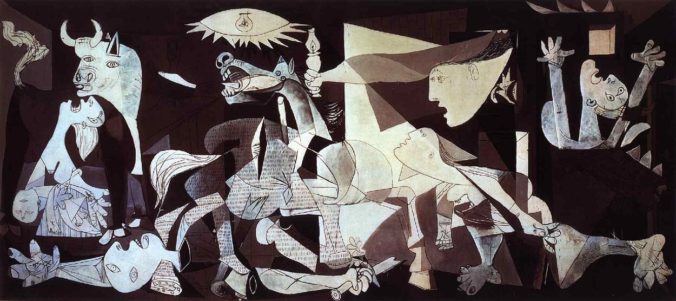
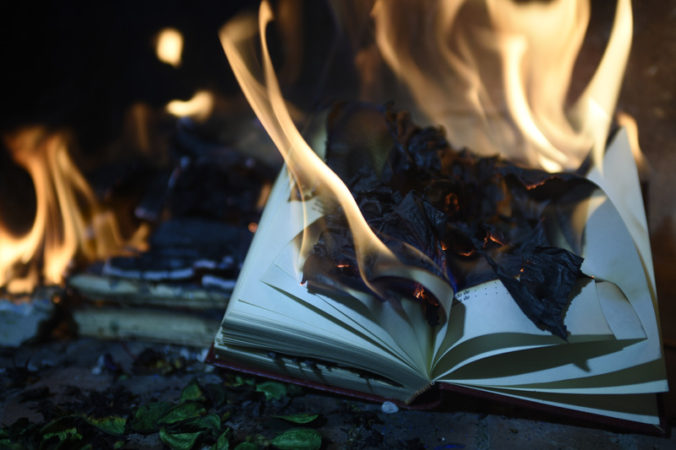


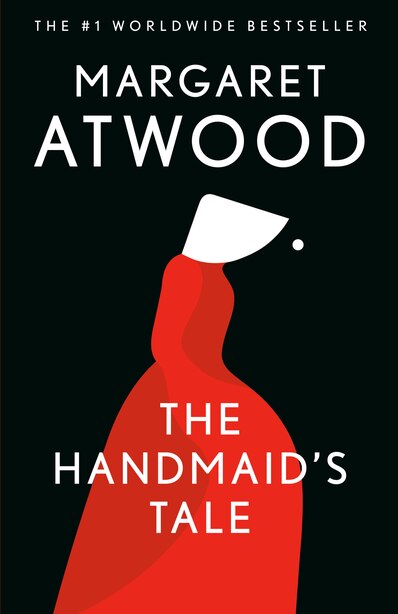
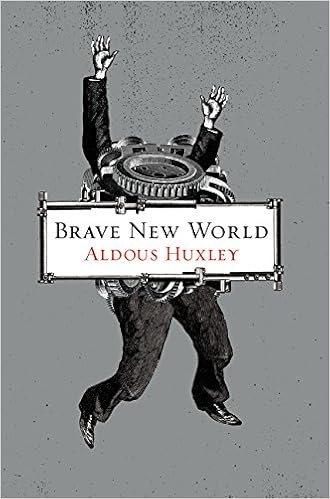
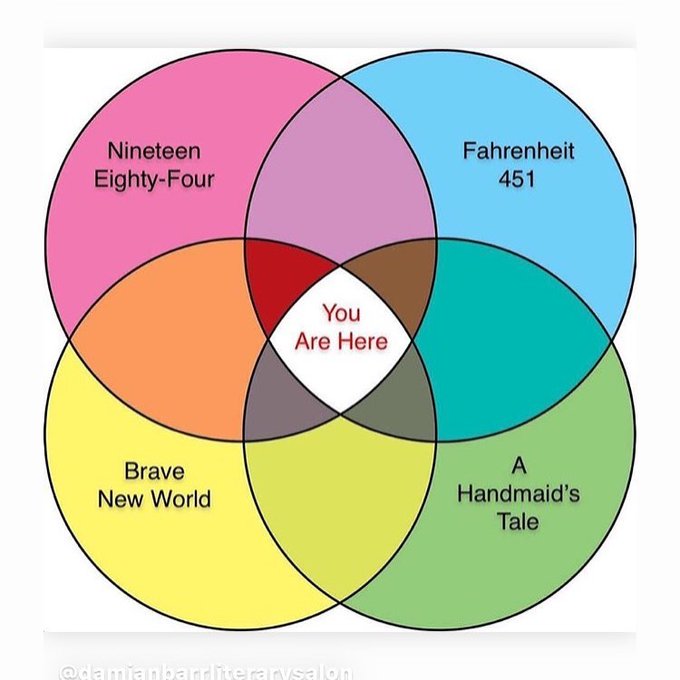
Recent Comments